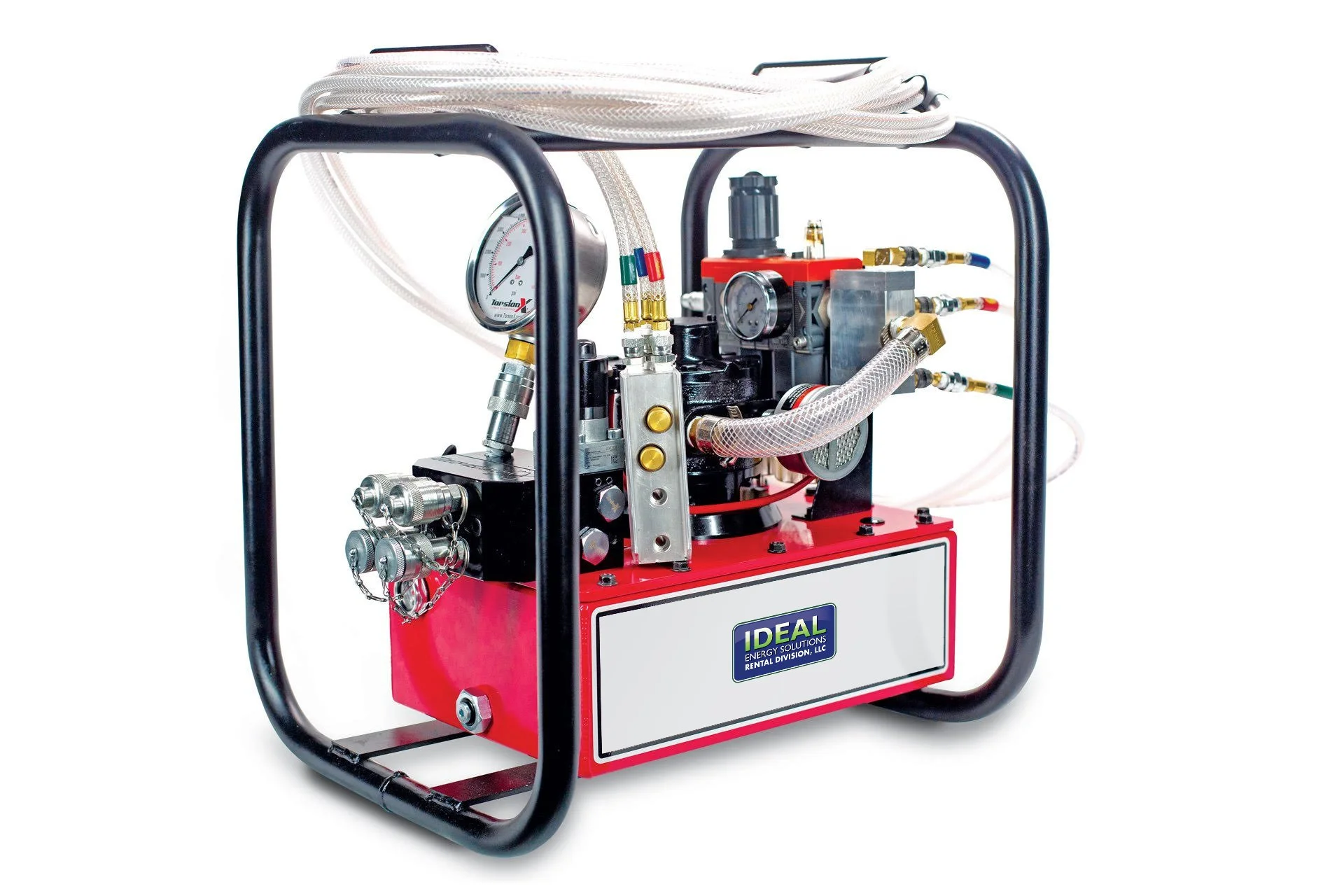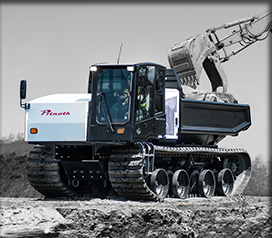Superior Rentals Contact: phone, email, and support explained
Wiki Article
A Comprehensive Guide to the Different Kinds of Oil Field Equipment and Pipeline Equipment Available
The oil and gas sector depends greatly on specialized devices for reliable removal and transportation. Different sorts of equipment, from piercing rigs to tank, play vital roles in this complicated procedure. Each item of tools serves distinct functions that contribute to general functional success. Understanding these components is necessary for anyone associated with the industry. As the industry develops, so as well do the modern technologies that support it. What developments are on the horizon?
Drilling Rigs: The Foundation of Oil Exploration
Drilling rigs act as the crucial machinery in the domain of oil expedition, allowing companies to accessibility hydrocarbon books buried deep underneath the Earth's surface area. These rigs come in numerous types, consisting of land rigs, offshore rigs, and mobile systems, each created to operate in particular atmospheres. Equipped with sophisticated technology, piercing rigs can penetrate geological developments with accuracy, making sure reliable resource removal. The structural stability and operational abilities of these rigs are critical, as they have to endure severe conditions and significant pressures. The option of an exploration rig affects the total project cost and timeline, making it a crucial factor to consider for oil business looking for to maximize their exploration efforts and take full advantage of performance in their procedures.Pumps: Important for Fluid Motion
In the oil removal process, the duty of pumps is substantial, facilitating the movement of fluids throughout various stages of production. Pumps are vital for moving petroleum, water, and other liquids from underground tanks to the surface and after that with pipes to refineries. They can be found in numerous kinds, including centrifugal, positive displacement, and submersible pumps, each offering details objectives based upon the liquid features and functional demands. Centrifugal pumps are generally made use of for their effectiveness in high-flow applications, while favorable displacement pumps excel in dealing with viscous liquids. The selection of pump effects general efficiency, operational security, and maintenance costs. Proper option and upkeep of pumps are essential for maximizing manufacturing and decreasing downtime in oil area operations.Valves: Managing Flow and Pressure

Shutoffs play an important function in managing the circulation and stress of liquids within oil areas and pipelines. Numerous types of shutoffs offer distinct applications, each made to satisfy details functions essential for reliable procedure - Superior Rentals near me. Understanding the attributes and usages of these valves is vital for maximizing system performance and safety
Kinds of Valves
Vital parts in oil field operations, valves play a crucial function in managing the circulation and stress of liquids within pipes and equipment. Various types of valves are used to fulfill the varied demands of oil and gas production. Common types include gate valves, which offer a straight-line flow and very little stress decrease; world shutoffs, understood for their throttling capabilities; and ball valves, identified for their quick on/off control. Furthermore, check valves avoid backflow, while butterfly valves offer a lightweight service for controling flow. Each valve type is designed with specific products and arrangements to withstand the rough problems usually located in oil areas, making certain integrity and performance in procedures. Comprehending these types is crucial for effective system administration.Valve Applications and Functions
While various kinds of valves offer unique functions, their primary applications focus on regulating circulation and pressure within oil and gas systems. Shutoffs such as gateway, globe, and ball shutoffs regulate liquid activity, making certain peak performance and safety and security. Entrance shutoffs are typically utilized for on/off control, offering minimal circulation resistance. Globe shutoffs, on the various other hand, deal specific flow regulation, making them ideal for throttling applications. Round shutoffs are favored for their fast operation and limited securing capabilities. In addition, stress safety valve are crucial for avoiding system overpressure, safeguarding devices stability. On the whole, the proper selection and application of shutoffs enhance functional efficiency, making certain the reliable transportation of oil and gas with pipes and processing centers.Compressors: Enhancing Gas Transport
Compressors play a critical function in the reliable transport of gas, ensuring that it relocates efficiently via pipelines over lengthy distances. These gadgets raise the pressure of all-natural gas, permitting it to overcome rubbing and elevation modifications within the pipeline system. Additionally, compressors help with the harmonizing of supply and need, accommodating changes in intake and production rates. Different types of compressors are used in the sector, including centrifugal, reciprocating, and rotary screw compressors, each offering unique benefits based upon the operational demands. Regular upkeep of these compressors is important to make the most of performance and decrease downtime, ultimately adding to a trusted gas transport network. Their critical function underscores the significance of compressors in the general oil and gas framework.Storage Tanks: Safe and Reliable Liquid Monitoring
Effective useful site transport of all-natural gas relies upon numerous support group, among which is the correct monitoring of tank. These storage tanks play an essential function in safely containing liquids, guaranteeing that functional effectiveness is kept while reducing ecological threats. Created from resilient materials, they are developed to withstand high stress and corrosive components. Properly sized and tactically situated, storage space tanks promote the smooth circulation of gas and other fluids, preventing bottlenecks in supply chains. Normal maintenance and tracking are necessary to discover leakages or structural problems, advertising safety and conformity with regulatory criteria. Ultimately, the efficient monitoring of storage tanks is crucial for the general integrity and integrity of the oil and gas sector's fluid description handling systems.
Pipeline Solutions: Infrastructure for Transport
Pipeline systems act as the foundation of the oil and gas market, helping with the efficient transportation of hydrocarbons over vast distances. These systems are composed of different components, consisting of pipelines, shutoffs, pumps, and compressors, all thoroughly made to guarantee seamless circulation. The products used in pipeline building, commonly steel or high-density polyethylene, are picked for durability and resistance to deterioration. Pipeline networks can extend throughout land and water, attaching production websites to refineries and warehouse. Furthermore, progressed modern technology enables real-time tracking of circulation rates and pressure degrees, boosting operational effectiveness. The critical placement of these pipelines minimizes environmental influence while maximizing source access, thus playing an essential function in meeting power needs worldwide.Safety And Security Equipment: Making Certain Employee and Environmental Management
The operation of pipeline systems, while essential for energy transportation, likewise offers substantial safety difficulties for workers and the setting. Security equipment plays a considerable function in alleviating these risks. Individual safety equipment (PPE) such as helmets, gloves, and non-slip footwear safeguards workers from physical hazards. Additionally, gas detection systems monitor for leaks, making sure that unsafe materials do not posture a hazard to employees or the bordering ecological community. Emergency situation closure systems are imperative for quickly halting operations throughout anonymous a situation, stopping prospective disasters. Spill containment products, consisting of absorbents and barriers, are fundamental for minimizing ecological effect. Generally, purchasing all-encompassing safety and security devices is critical for maintaining operational stability and shielding both workers and the environment in the oil and gas field.
Frequently Asked Concerns
Just how Do I Choose the Right Oil Field Equipment for My Job?
Picking the best oil field tools entails assessing task requirements, spending plan constraints, and operational demands. Take into consideration variables such as equipment reliability, compatibility with existing systems, and the vendor's online reputation to guarantee peak performance and safety.What Are the Maintenance Needs for Oil Field Equipment?
Maintenance requirements for oil field devices consist of normal examinations, lubrication, and prompt repairs. Operators should also adhere to producer standards, screen efficiency metrics, and warranty conformity with safety and security regulations to enhance longevity and efficiency.
Exactly How Can I Ensure Conformity With Environmental Regulations?
To ensure compliance with ecological regulations, business must perform regular audits, carry out best methods, invest in training, preserve proper paperwork, and remain updated on regulation (Superior Oilfield pipeline equipment rentals). Partnership with ecological agencies can likewise boost adherence to policiesWhat Is the Typical Life-span of Pipeline Equipment?
The average life expectancy of pipeline tools generally varies from 20 to half a century, depending on elements such as worldly top quality, environmental conditions, and maintenance methods. Normal inspections can substantially influence durability and functional performance.How Do I Safely Carry Oil Field Equipment to Remote Locations?
Moving oil field equipment to remote locations requires cautious planning, consisting of path evaluation, safeguarding authorizations, using appropriate cars, and guaranteeing security procedures are complied with. Appropriate training and interaction amongst teams are crucial for effective transport.Report this wiki page